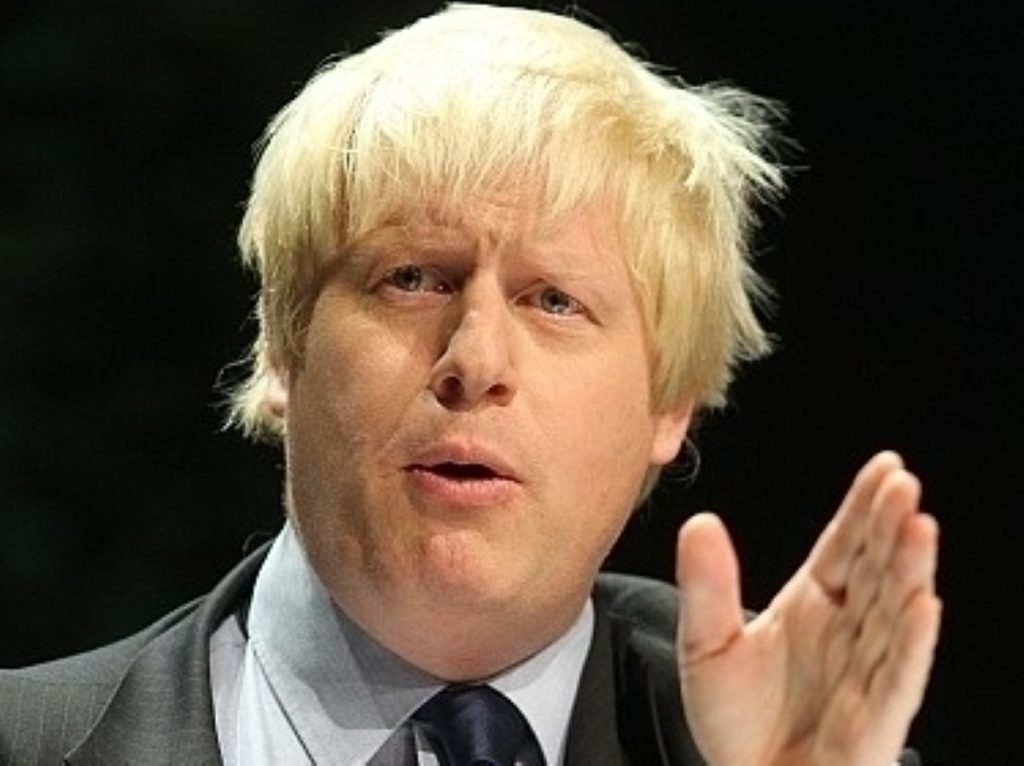Boris: Cameron’s EU policy ‘has no democratic legitimacy’
By Ian Dunt Follow @IanDunt
Boris Johnson issued another warning shot across the bows of the Conservative leadership today with a provocative interview attacking its policy towards the EU.
The London Mayor said current British strategy over the eurocrisis would create an organisation without any "democratic legitimacy" which would be run by Germany.
Speaking to the Sunday Telegraph, Mr Johnson criticised David Cameron's 'big bazooka' approach to the crisis – which would see the European Central Bank (ECB) shore up economies by printing money – and George Osborne's suggestion that the eurozone economies cooperate more thoroughly on tax and spending.


"This idea that if we can find a big enough bazooka, we could blow away the problem by creating a Euro government in which there will be shared fiscal responsibility, I’m afraid that really will, in the long term, and probably even in the short and medium term, simply exacerbate the problem, because that administration, that economic government will have no democratic legitimacy," he said.
"What needs to happen now is an orderly realignment, that's to say there needs to be either a bisection of the euro into north and south, or there needs to be some way in which, in as tidy a way as possible, countries that simply can't take the consequences of the current alignment, are allowed, effectively, to devalue.
"And that can either mean, leaving the euro and then re-entering, or breaking apart, having a new Drachma… those are some of the solutions," he added.
"What I don’t think you can do, is just pretend that you can create an economic government of Europe, effectively run by Germany. That’s no… that’s not meant to be provocative towards Germany. Germany’s just thrust into that position, by sheer economic weight and political necessity.
"I'm not saying the Germans are being hegemonic in this. But I don't think it's right for us; it's not right for Europe."
Mr Johnson's comments will be considerably closer to the viewpoint of most Conservatives than current government policy towards Europe, which has been attacked for being muddled and contradictory.
Analysts will also treat the quotes as further evidence of a preliminary clash between Mr Johnson and Mr Osborne ahead of the real struggles for the leadership in the years ahead.












